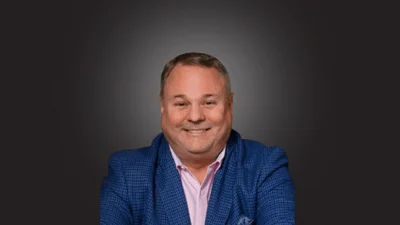WHAT:
The Subcommittee on Oversight and Investigations, chaired by Rep. Gregg Harper (R-MS), held a hearing today examining practices within the substance use treatment industry, including advertising and marketing practices. The hearing builds on the committee’s ongoing bipartisan investigation into patient brokering, which began one year ago.
WHY:
“Many treatment-focused websites advertise hotlines that purport to direct individuals to a trained professional that can help the individual assess what treatment facility will best meet their needs. These call centers may appear to be unaffiliated third-party referral services, but they are often either owned and operated by treatment facilities or are paid by facilities to refer calls. While some centers disclose their relationship with treatment facilities, others may engage in deceptive marketing tactics to hide them," said #SubOversight Chairman Harper. “Moreover, these call centers are often staffed by sales representatives rather than medical professionals. In some cases, the individuals staffing the company’s call center receive a bonus each month based on the number of callers that are successfully admitted into one of the company’s facilities."
WHO:
* Jason Brian, Founder, Redwood Recovery Solutions and TreatmentCalls.com (Opening Statement )
* Michael Cartwright, Chairman and CEO, American Addiction Centers (Opening Statement )
* Mark Mishek, President and CEO, Hazelden Betty Ford Foundation (Opening Statement )
* Robert Niznik, CEO, Addiction Recovery Now and Niznik Behavioral Health (Opening Statement )
* Kenneth Stoller, Director, Johns Hopkins Hospital Broadway Center for Addiction (Opening Statement )
* Marvin Ventrell, Executive Director, National Association of Addiction Treatment Providers (NAATP) (Opening Statement )
KEY MOMENTS:
“Most in our field do great work. But to ensure ethical, quality care for all who seek help for addiction, we believe it is time to establish quality standards and a consistent, enforceable regulatory framework for the addiction treatment industry. The stakes-patient safety and public confidence in addiction treatment-are high." - Mr. Mishek
In a move to combat instances of patient brokering, NAATP made changes to their code of ethics to specify that they do not allow treatment providers to buy or sell leads. Energy and Commerce Committee Chairman Greg Walden (R-OR) asked Mr. Ventrell about these changes and what practices NAATP was seeing that prompted the action. Watch Mr. Ventrell’s response here.
Rep. Susan Brooks (R-IN) posed a series of questions relating to the pay and bonus structure of employees working in call centers. In response, Mr. Niznik testified, “Our call center employees are all salaried employees, who also do receive a discretionary bonus. It’s based on many factors that you’d expect someone that answers calls to measure, so courtesy of returning calls, not missing calls. But I think what’s important is that no one that answers these calls has any impact on the sort of care someone receives. So, when a patient comes to us, it’s the doctors, the nurses, the therapists - they make that determination. The rep, really just being measured how good of a job they do when explaining the services we offer and performing just typical job duties of answering calls."
Mr. Niznik also told Rep. Brooks that the bonuses are given on a monthly basis.
Rep. Ryan Costello (R-PA) asked Mr. Brian a series of questions about how calls are routed and how much his organization pays per call. Mr. Brian responded, stating, “It would vary depending on the type of call. It would range anywhere from $10, $15, $20 on up to $60 or $70 depending on how the call was originated."
In concluding the hearing, #SubOversight Chairman Harper pulled up the website for one of Mr. Cartwright’s websites on his phone, again making the case that the website does not make it immediately clear who is facilitating an individual’s request for information about treatment. #SubOversight Chairman Harper asked Mr. Cartwright, “Why wouldn’t you just list that information at the top of your webpage? You have to go hunt for that. …Wouldn’t it be easy to at the beginning of your webpage to say that information?"
Mr. Cartwright responded, saying, “Yes, sir, we can do that."
RESOURCES:
In May, bipartisan committee leaders questioned a series of companies about their business practices and requested information about how they market and advertise in the substance use treatment industry, including information about call centers and websites, how their employees are trained, and what they disclose to callers about any affiliations with treatment centers.
#SubOversight held its first hearing examining patient brokering in December 2017.
The Majority Memorandum, witness testimony, and an archived webcast are available online HERE.





